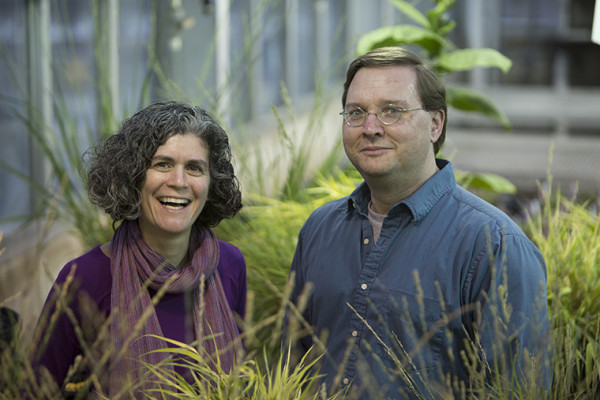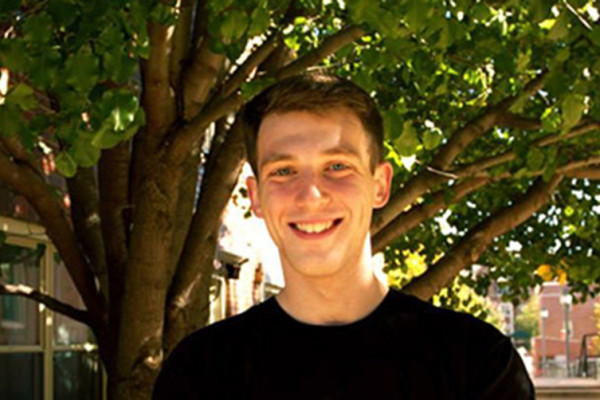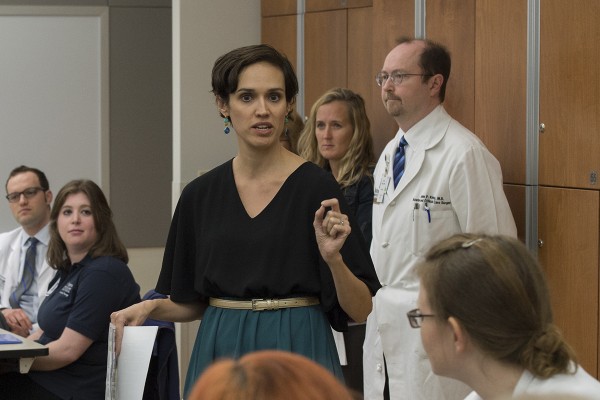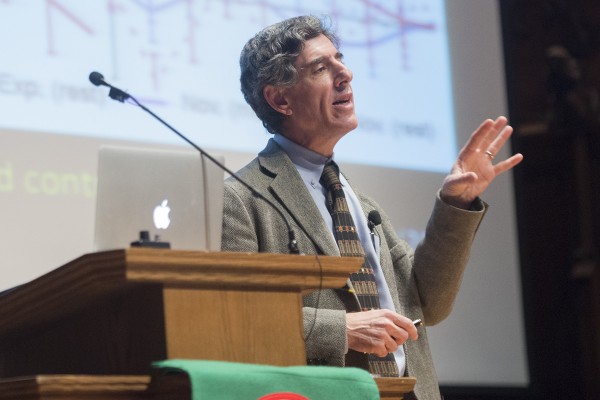New center aims to use immune system to fight cancer, other diseases
A new center at the School of Medicine will help scientists use the power of the immune system to fight infections and cancers. The Center for Human Immunology and Immunotherapy Programs is part of BioMed21, Washington University’s initiative to accelerate basic science discoveries into improved diagnosis and treatment for patients.
Study compares long-term effectiveness of diabetes drugs
Researchers at the School of Medicine are comparing the long-term benefits and risks of four widely used diabetes drugs given in combination with metformin, the most commonly prescribed medication for treating type 2 diabetes. The principal investigator at the St. Louis clinical site is Janet B. McGill, MD, who is pictured discussing options with study patient Michael Gingrich.
Danforth Fellowships in plant sciences announced
Chancellor Mark S. Wrighton has announced the creation of new four-year fellowships in the Division of Biology and Biomedical Sciences, made possible by a generous gift from William H. Danforth. Danforth hopes the new fellowships will attract highly motivated students to this field of study and foster a culture of intellectual entrepreneurship focused on research and innovation in plant sciences.
Trustees grant faculty promotions, tenure
At a recent WUSTL Board of Trustees meeting, several faculty members were appointed with tenure, promoted with tenure or granted tenure.
Medical Campus students perform ‘Young Frankenstein’ April 24-26
Students at the School of Medicine will perform “Young Frankenstein” April 24-26 in Whelpley Auditorium at the St. Louis College of Pharmacy, which abuts the Medical Campus. The performance is the school’s ninth annual completely student-run musical.
Some immune cells defend only one organ
School of Medicine scientists have uncovered a new way the immune system
may fight cancers and viral infections. The finding could aid efforts to
use immune cells to treat illness.
Tinianow to receive 2014 Stalker Award
Alex Tinianow will receive this year’s Harrison D.
Stalker Award from the Department of Biology in Arts & Sciences at
Washington University in St. Louis. The award is given annually to a graduating biology
major whose undergraduate career combines outstanding scientific
scholarship with significant contributions in the arts and humanities.
Children’s Discovery Institute awards $3.1 million in pediatric research grants
Scientists researching pediatric lung disease, childhood cancer, malaria and short bowel syndrome will share $3.1 million in new grants from the Children’s Discovery Institute (CDI). The grants, announced earlier this year, will fund 10 research initiatives at the School of Medicine and St. Louis Children’s Hospital.
Interprofessional education: Learning patient-centered care
Future medical professionals from various disciplines, together for the first time, learn to coordinate care and communicate.
On well-being
Groundbreaking neuroscientist Richard Davidson visited campus for two days of lectures, discussing the emotional life of the brain and how well-being can be learned.
View More Stories




